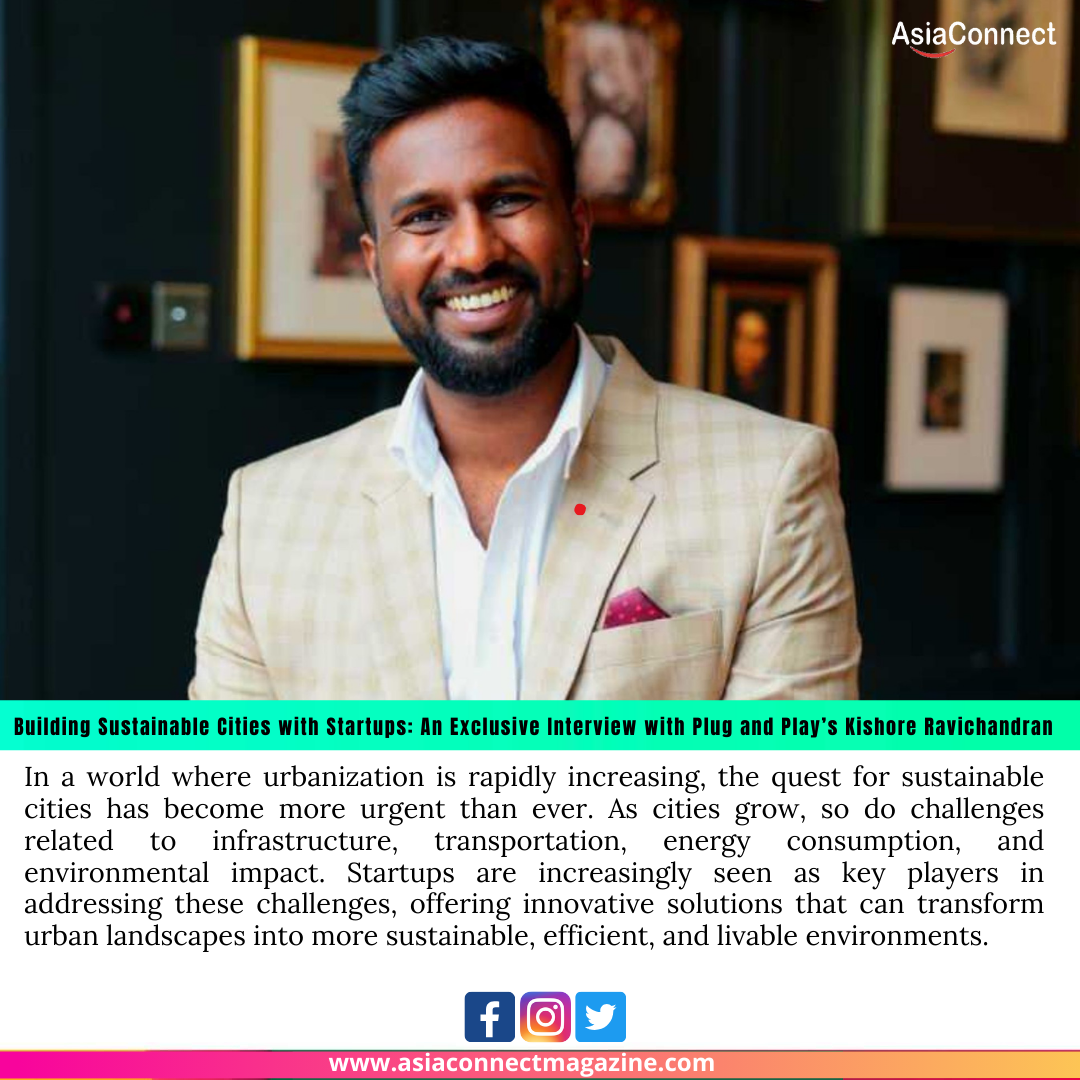In a world where urbanization is rapidly increasing, the quest for sustainable cities has become more urgent than ever. As cities grow, so do challenges related to infrastructure, transportation, energy consumption, and environmental impact. Startups are increasingly seen as key players in addressing these challenges, offering innovative solutions that can transform urban landscapes into more sustainable, efficient, and livable environments.
Plug and Play, a global innovation platform and accelerator, has been at the forefront of connecting startups with corporate partners to drive innovation across various industries, including urban sustainability. Kishore Ravichandran, Managing Director of Plug and Play’s Smart Cities program, provides valuable insights into how startups are contributing to building sustainable cities through technology and innovation.
The Role of Startups in Urban Sustainability
According to Kishore Ravichandran, startups play a crucial role in urban sustainability by bringing fresh ideas and disruptive technologies to the table. “Startups are agile and entrepreneurial by nature. They are often able to develop and iterate on solutions much faster than traditional players,” he explains. This agility is particularly valuable in urban environments where the pace of change is rapid, and the need for scalable solutions is critical.
Startups in the smart cities space are tackling a wide range of challenges, from improving energy efficiency and waste management to enhancing public transportation and promoting green building practices. By leveraging technologies such as Internet of Things (IoT), artificial intelligence (AI), and blockchain, these startups are creating innovative solutions that optimize resource use, reduce carbon footprint, and improve quality of life for urban residents.
Plug and Play’s Approach to Driving Innovation
At Plug and Play, fostering collaboration between startups, corporates, and governments is central to driving innovation in smart cities. “We act as a bridge between startups and corporate partners, facilitating pilot projects, investment opportunities, and strategic partnerships,” says Ravichandran. This collaborative approach allows startups to validate their solutions in real-world settings and scale their impact more effectively.
Through its extensive network of corporate partners and mentors, Plug and Play provides startups with access to industry expertise, market insights, and funding opportunities. This support ecosystem is crucial for startups looking to navigate regulatory challenges, secure funding, and scale their solutions globally.
Challenges and Opportunities
Despite their potential, startups in the smart cities space face several challenges, including regulatory barriers, funding constraints, and the complexity of urban ecosystems. However, these challenges also present opportunities for innovation and collaboration. “By working closely with governments and corporates, startups can navigate regulatory challenges more effectively and gain access to large-scale deployment opportunities,” Ravichandran points out.
Moreover, the growing demand for sustainable solutions and the increasing emphasis on resilience and adaptability in urban planning create a fertile ground for startups to thrive. As cities worldwide commit to achieving ambitious sustainability goals, the demand for innovative technologies and scalable solutions is expected to grow exponentially.
Looking Ahead
Looking ahead, Kishore Ravichandran is optimistic about the role of startups in shaping the future of sustainable cities. “Startups have the potential to drive transformative change in urban environments, making them more resilient, inclusive, and sustainable,” he says. As cities continue to evolve, the collaboration between startups, corporates, and governments will be crucial in harnessing the power of innovation to create cities that are not only smart but also sustainable and livable for all.
In conclusion, startups are playing an increasingly vital role in building sustainable cities by leveraging technology, innovation, and collaboration. Through platforms like Plug and Play, these startups are driving transformative change and paving the way for a more sustainable urban future.





